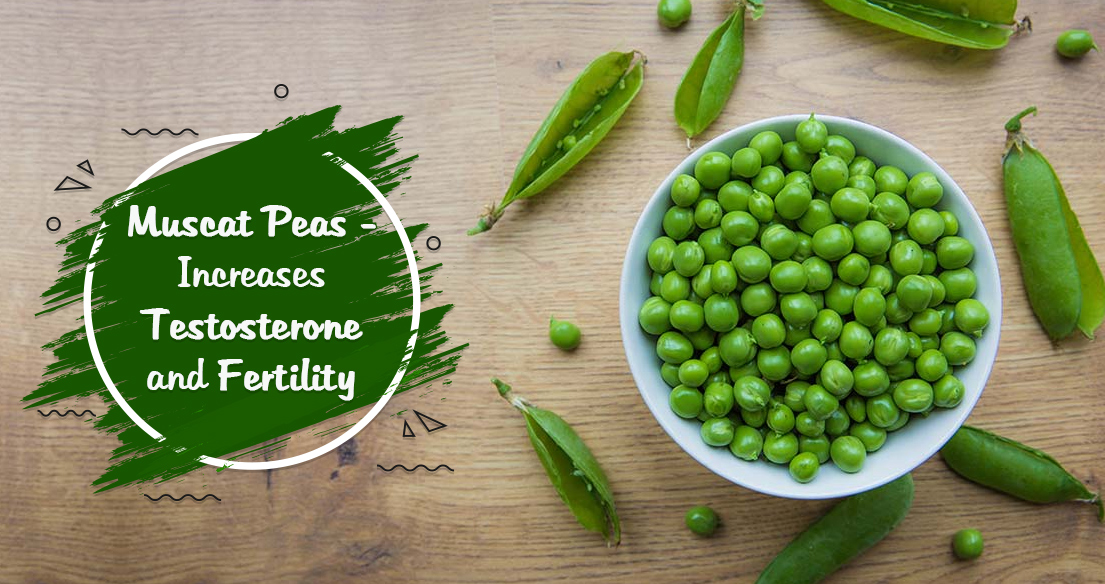What is Muscat Pea?
Muscat Pea (Mucuna Pruriens) is a leguminous plant that grows in tropical climates. This plant is applied for the explanation of food supplements. Although these results are often marketed as “Muscat Peas,” the product is an infusion of the seeds of this plant, which have the active parts that we can seek for the consumption of this substance.
Muscat Peas, qualities
The seeds of the Muscat Pea have been used traditionally as an aphrodisiac and stimulating. The seeds have a huge amount of L-Dopa, a precursor amino acid for the neurotransmitter Dopamine, which offers various physiological roles (sleep regulator, mood, and cognition, reward, and craving, catecholaminergic, making of milk).
What is Muscat Pea applied for?
Although Peas Muscat is assigned a wide variety of physiological impacts on human and animal models, in this article, we will explain the two main effects of this substance:
- Boosts fertility (increases testosterone and its ancestors)
- The symptomatic decrease in Parkinson’s
- Muscat peas and male fertility
- Muscat Pea has been extensively used to increase male fertility.
- This mixture improves fertility by improving ejaculated seminal volume, sperm quantity (spermatogenesis), and growing their motility.
That is to say; it is a valuable product for the therapy of the 3 main conditions that cause male infertility:
- Hypothermia (low sperm count),
- Oligozoospermia (low sperm count on ejaculated semen, full or relative),
- Asthenozoospermia (hypomobility of sperm present in ejaculated semen, despite the amount).
Study 1
Shukla et al. (2009) did research in which daily intake of 5g of Mucuna Pruriens seed extract supplement without identifying the dose of L-Dopa in a single dose for 3 months gave an enhancement in liquefaction, ejaculated semen quantity,% sperm motility, and attention of them, not only in oligozoospermia and asthenozoospermia subjects but also in normozoospermic problems.
Study 2
A later study, Gupta et al. (2011), in which section of the last authors joined, used the same protocol (5g / day of Mucuna) on asthenozoospermia, oligozoospermia, and normozoospermic subjects.
Coming to the identical conclusions that Mucuna improves the fertility of subjects referring to all groups, but in this case, they also included the lipoperoxidation of sperm.
Radical peroxidation ends up harming the sperm. So reducing sperm peroxidation increases sperm functionality and, therefore, chances of pregnancy.
Conclusions
In this research, the concentrations of several amino acids in the semen of the subjects were also investigated using nuclear magnetic resonance spectroscopy.
The authors decided that oral intake of 5g per day of Muscat Peas significantly increases the metabolic profile of metabolites of amino acids present in primary plasma.
As the part that each amino acid performs in infertility is not precisely identified so try fildena or vidalista 60, and the etiology of its application (EU- or dis-) is very varied, let us specify that an accurate balance in the spectrum of metabolites of various amino acids in semen defines male fertility to some extent.
Muscat Peas and Testosterone
Also, as the authors assume, this substance increases male fertility through the different ways that modify it. One of these ways, which we have not always revealed on this joint and which you may be involved in, is hormonal stability.
How Does It Boost Testosterone?
Mucuna Pruriens increases the hormonal environment reliant on HPTA (hypothalamic pituitary testicular axis):
Increases LH (luteinizing hormone) and T (Testosterone)
Lessens FSH (follicle-stimulating hormone) and PRL (prolactin)
This replicated these results in both trials consistently and with an unknown magnitude of growth in all groups’ subjects.
Explanation of the mechanism of action
The mechanism of motion by which Muscat Pea seems to enhance the hormonal environment is by the presence of L-Dopa in its seeds, which includes active metabolites of catecholamines (epinephrine, norepinephrine, and Dopamine Dopamine):
The L-Dopa meets the BBB (Blood Brain Barrier), and rising concentrations of Dopamine in the brain; it blocks the creation of PRL in the anterior lobe of the pituitary;
Its following blockage stimulates the creation of GnRH in the hypothalamus;
The GnRH is gonadotropin (stimulating signaling) upstream of LH production in the pituitary gland;
Also, LH moves to the gonads (testes), where it binds to Leydig cells’ receptors, raising cAMP production from ATP, which excites steroidogenesis (testosterone).
Promotes hormonal homeostasis
I’m sure we are all informed of this, as there are medications that dramatically improve serum testosterone levels by providing contradictory feedback inhibition on LH production, right so why not taking tadalista or vidalista 40?
The Peas Muscat is an exciting complement to reach the normal state (hormonal homeostasis) of patients who worked these medications after the cessation of their use.
Mucuna Pruriens and Parkinson’s
The last result of Muscat Pea and that it stimulates potential interest in the treatment of Parkinson’s. This progressive neurodegenerative disorder is defined by the destruction of presynaptic neurons located in the substantial nigra, decreasing dopamine synthesis.
The most applied palliative treatment to defeat this disease’s symptoms is the union of Levodopa and Carbidopa. However, Muscat Pea appears to be a more potent substance than conventional medicine. Levodopa and Carbidopa improve plasma dopamine concentrations, causing the peak strength to happen faster and more widely.
The administration of 30 g. of Mucuna Pruriens appeared in a peak concentration 110% higher than levodopa + carbidopa administration. An area under the curve 165.3% higher and an average span of 37 minutes (21.9%) are longer than the traditional treatment.

















